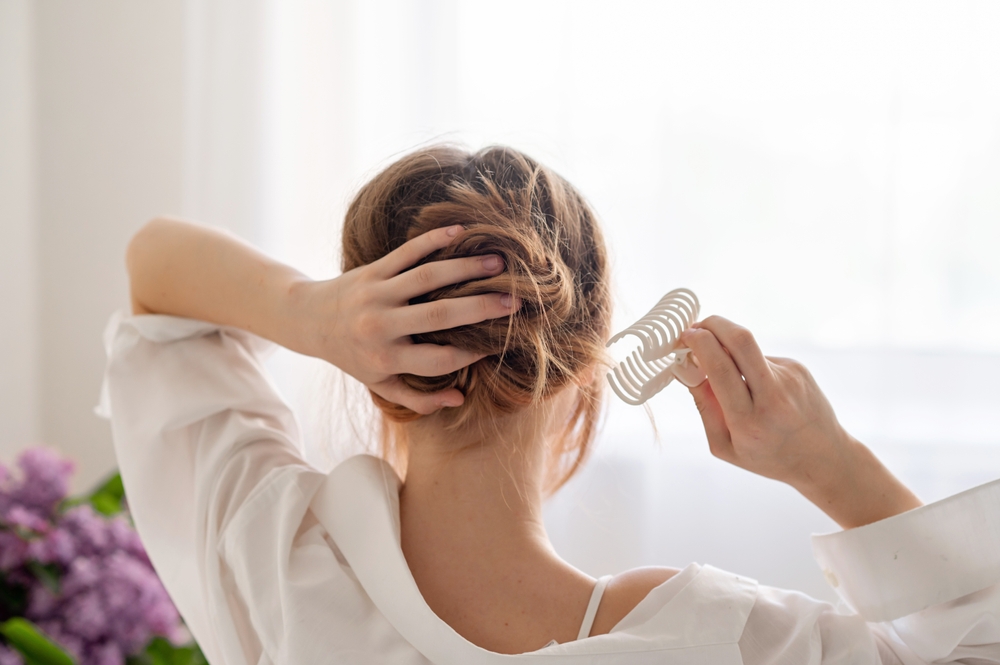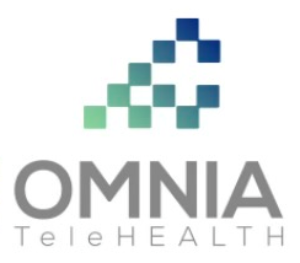Hormones play a central role in the body’s regulation of hair growth and shedding. Various hormonal fluctuations—whether due to puberty, pregnancy, menopause, or thyroid issues—can have a significant impact on the hair cycle. In women, hormonal imbalances are one of the leading contributors to hair thinning and loss.
One common form of hormone-related hair loss in women is androgenic alopecia, or female pattern baldness. This occurs when androgens (male hormones present in both men and women) increase in the body, affecting hair follicles and shortening the hair growth cycle. Androgenic alopecia can cause hair thinning along the crown and temples, making the scalp more visible over time.
In addition to androgenic alopecia, hormonal imbalances from conditions like polycystic ovary syndrome (PCOS), thyroid disorders, and menopause can also contribute to hair loss. The fluctuation of estrogen and progesterone levels, which help maintain healthy hair growth, can disrupt the hair cycle when imbalanced. This is why many women notice thinning hair during significant life stages such as post-pregnancy or menopause.
OMNIA TeleHEALTH provides telehealth consultations that allow you to discuss these hormonal changes and how they may be affecting your hair. With virtual access to healthcare providers, you can develop a personalized treatment plan that addresses your specific hormonal concerns.
How Diet Impacts Hair Health
Diet is another critical factor in maintaining healthy hair. Hair is made up primarily of a protein called keratin, and it relies on various nutrients to grow and thrive. A poor diet, lacking in essential vitamins and minerals, can weaken hair follicles, leading to hair thinning or shedding.
Here are a few key nutrients that are essential for hair health:
- Protein: Since hair is primarily composed of protein, a diet low in protein can lead to weak, brittle hair. It’s important to incorporate protein-rich foods like eggs, lean meats, and legumes into your diet to support hair growth.
- Iron: Iron deficiency, also known as anemia, is a common cause of hair loss, particularly in women. Iron is essential for delivering oxygen to your hair follicles, promoting healthy growth. A lack of iron can result in thinning hair and increased shedding. Foods like spinach, red meat, and lentils are excellent sources of iron.
- Biotin (Vitamin B7): Biotin is a water-soluble vitamin that is essential for the production of keratin. A deficiency in biotin can cause hair thinning and hair loss. Biotin is found in foods such as eggs, nuts, and sweet potatoes.
- Omega-3 Fatty Acids: These healthy fats nourish the scalp and help keep hair hydrated. Omega-3s can be found in fatty fish like salmon and mackerel, as well as chia seeds and walnuts.
- Zinc: Zinc supports hair tissue growth and repair. It also helps keep the oil glands around hair follicles working properly. A lack of zinc can cause hair thinning and, in some cases, scalp conditions like dandruff.
If you suspect that your diet may be contributing to hair loss, OMNIA TeleHEALTH offers the convenience of telehealth consultations to review your nutritional intake. A provider can help identify any potential deficiencies and recommend dietary adjustments or supplements to support hair health.
The Connection Between Diet, Hormones, and Hair Loss
The relationship between diet and hormones is deeply intertwined, and both factors can play a significant role in female hair loss. For example, a diet high in processed foods and sugar can cause insulin levels to spike, which may disrupt hormonal balance and lead to hair thinning. Similarly, crash dieting or extreme weight loss can throw off your hormone levels, leading to temporary hair shedding, a condition known as telogen effluvium.
Hormonal imbalances can also affect how your body processes nutrients. For instance, women with PCOS may experience insulin resistance, which can interfere with the body’s ability to absorb and use nutrients effectively. This makes it even more important to maintain a balanced diet rich in vitamins and minerals that support both overall health and hair growth.
Addressing hair loss often requires looking at both diet and hormone levels. With OMNIA TeleHEALTH’s telehealth services, you can easily connect with providers who will assess your overall health, including any hormonal or dietary factors that may be contributing to your hair loss. From there, you can develop a holistic plan to restore hormonal balance and ensure your diet supports healthy hair growth.
Managing Female Hair Loss with Telehealth
Managing hair loss can be frustrating, especially when the causes are multifactorial. Fortunately, telehealth services offer a convenient way to receive comprehensive care from the comfort of your home. OMNIA TeleHEALTH offers personalized consultations where providers can assess your hormonal health, dietary habits, and lifestyle factors that may be impacting your hair.
With telehealth, you can avoid the need for in-person visits and instead receive expert guidance through virtual consultations. Providers at OMNIA TeleHEALTH can recommend treatments such as dietary supplements, hormonal therapies, or topical medications to help improve your hair health.
Additionally, telehealth allows for ongoing monitoring of your progress. Whether you need follow-up care or adjustments to your treatment plan, virtual consultations make it easy to stay on top of your hair health without the inconvenience of traveling to a clinic.
Practical Steps for Supporting Hair Health
Taking steps to maintain hormonal balance and nourish your body with the right nutrients can make a significant difference in preventing and managing female hair loss. Here are some practical tips to help you support healthy hair:
- Maintain a Balanced Diet: Focus on eating whole foods rich in protein, vitamins, and minerals. Incorporate a variety of fruits, vegetables, lean proteins, and healthy fats to ensure your body gets the nutrients it needs for healthy hair.
- Avoid Crash Diets: Sudden weight loss can lead to temporary hair shedding. Instead of restrictive diets, aim for a sustainable, balanced approach to eating that supports both your hair and overall health.
- Monitor Hormonal Changes: Be mindful of life stages that can affect your hormones, such as pregnancy, menopause, or starting or stopping hormonal birth control. If you notice significant hair thinning during these times, consult with a provider for guidance.
- Consider Supplements: If your diet is lacking in certain nutrients, supplements like biotin, iron, or omega-3s may help. Always consult a healthcare provider before starting any new supplements.
- Practice Stress Management: Chronic stress can trigger hormonal imbalances, leading to hair loss. Incorporate stress-relieving activities like yoga, meditation, or exercise into your routine to help maintain hormonal balance.
By incorporating these strategies into your lifestyle, you can help promote healthy hair growth and prevent further hair loss.
Sources:
- Fenton, D. A., & Wilkinson, J. D. (2020). Hormonal Influence on Female Hair Loss. British Journal of Dermatology.
- Sinclair, R. D., et al. (2019). Nutritional Factors in Hair Loss. Journal of Clinical and Aesthetic Dermatology.
- McMichael, A. J. (2018). Female Pattern Hair Loss: A Comprehensive Review. Journal of the American Academy of Dermatology.


